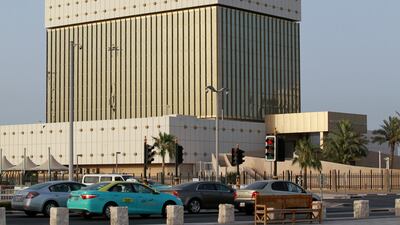Standard & Poor's Global Ratings affirmed Qatar's long and short-term foreign and local currency sovereign ratings with a negative outlook as the economic boycott of Doha could potentially lead to slower growth and hamper fiscal and external performance of the gas-rich nation.
Qatar’s rating was affirmed at AA-/A-1+ with negative outlook. S&P had lowered the long-term credit rating a notch from AA in June’s rating action but had kept the short-term rating at A-1+. The transfer and convertibility (T&C) assessment is AA.
“The negative outlook reflects our view of the potential consequences of the boycott on Qatar's economic, fiscal and external metrics, especially if the boycott is tightened or prolonged,” S&P’s Dubai-based credit analysts Benjamin Young and Trevor Cullinan wrote in a report on Sunday.
In June, Saudi Arabia, the UAE, Bahrain and their North African ally, Egypt, severed diplomatic ties with Qatar, accusing it of supporting terrorism and meddling in their internal affairs, marking the worst diplomatic crisis in the GCC since the creation of the bloc in 1981. Doha has denied charges.
The country's only land border with Saudi Arabia - through which most of its food imports and raw materials for construction sector pass - remains closed and the dispute with its neighbours has seriously affected its economy. Doha has, so far, relied mainly on drawing down on its reserves to limit the impact.
_______________
Read more:
Qatar crisis: What you need to know
Law firm steers clear of Qatar on concern Barclays loan illegal
Qatar’s big economic conundrum
Qatar crisis with Arabian Gulf neighbours may disrupt financial flows, S&P says
_______________
S&P, however, said that it could lower the ratings on Qatar if the boycott reduced economic wealth levels to an extent that "we no longer assess gross domestic product per capita as a sufficient cushion to offset Qatar's weak trend growth rate". Uncertainty in Doha's policy predictability and a substantial fall in the government's liquid assets could also trigger a negative rating action, the agency added.
The non-oil economy of Qatar, the world’s biggest exporter of liquefied natural gas (LNG), is expected to slow down to 3.6 per cent in 2017 from about 5.6 per cent last year, according to Abu Dhabi Commercial Bank and Economist Intelligence Unit (EIU) estimates. Its construction sector, the health of which is central to Doha’s ambitions of executing an estimated US$200 billion infrastructure programme ahead of hosting the Fifa Football World Cup in 2022, has taken a major hit. Transport and tourism sectors have also been affected but the biggest impact is on banks and financial institutions.
Lenders are particularly under pressure as the threat of further deposit withdrawal looms and the cost of securing new funds rises. “Qatari banks host a substantial amount of non-resident deposits and interbank exposures. Should these be withdrawn at maturity, as we currently expect, the government may [have to] liquidate more of its assets to deposit cash with the banks,” S&P analysts noted, adding that state-owned enterprises could also require government financial support if the economic boycott was extended.
The crisis has led to an outflow of around $7.5bn in foreign customers' deposits and a further $15bn in foreign interbank deposits and borrowings, believed to be mainly from the quartet of boycotting Arab countries, according to a Reuters report citing Qatar Central Bank data, which added that the Qatari government, in response, has deposited nearly $18bn with local banks in June and July.
Qatari banks are now forced to turn to Asia and Europe for new funding as analysts predict further outflows from the country in coming months. National Bank of Qatar, the biggest lender by assets in the Middle East and North Africa by assets, recently held meetings with Asian investors for private placement of debt, Reuters said.
Qatar Islamic Bank, which has already raised funds through private placement deals in Japanese yen and Australian dollars is considering more such deals in European and other Asian markets.


